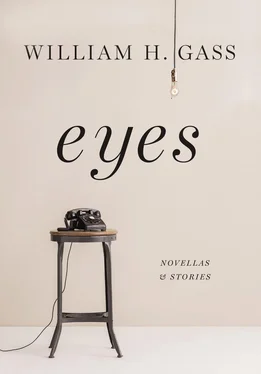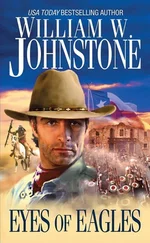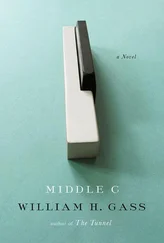Every photograph by its very nature is frozen in its moment, Mr. Gab said, but not every photograph portrays stillness as this one does. The sail is taut, smoke is streaming away toward the margins of the picture’s world, and the postures of the oarsmen suggest they are at work; but there is little wake, the surface of the water is scarcely ruffled, not a reed is bent, the trees are without leaves, and the faint form of a small windmill shows the four blades to be unmoving. Nevertheless, it is the lucency of the low light, the line of the sail’s spar, which meets on one side a shoreline, on the other a small inlet-edging fence, which holds the image still; it is the way the mast runs on into its reflection, and the long low haze stretched across the entire background at the point where earth and air blend, where the soft slightly clouded sky rises; it is the relation of all these dear tones to one another that creates a serenity which seeks the sublime, because it is so complete. Complete, u-Stu, complete.
Look. In this work, the house, the boat, the rowing men have no more weight than the boat’s small shadow on the pale white water, or the bare trees and stiff reeds, because all are simply there together. Equals added to equals yields equals. One can speak one’s self insensible about the salubrious and necessary unity of humankind with nature, u-Stu-u, yet rarely enable your listener to see how the solitude, the independent being, of every actual thing is celebrated by the community created through such a composition. The light, coming from the right, illuminates the sides of the house in such a way it seems blocky and dimensional, as the boat does; however the sail, the sky, the water, and their realms, though made of a register of curves, are otherwise, and flat as a drawn shade.
At exam time, Mr. Gab would cry out: what have I been saying? What have I said? Every player is made a star when the team succeeds as a team, Stu promptly answered, whereupon Gab lost his mister and his temper at the same time, complaining of the comparison, and refusing (as he regularly did after exams) to speak to his help, who had been relegated a rank.
In this bumpy way his education proceeded, but it had an odd consequence. Stu’s experience was made by someone else’s words; his memory, formerly poor, was reluctant to linger on an early life that had been a bitter bit of bad business; so he adopted another person’s past, and he saw what that other person said he’d seen. He kept house in another’s household, and adopted points of view he never properly arrived at. Who could blame him? Would not each of us have done the same? Why not change residences when the skin that confined you was a bitter bit of bad business?
His fingers licked him through the pages of Mr. Gab’s dozen or so books of photography, mostly limited to Mr. Gab’s narrow enthusiasms; however there was a recent Salgado which rendered the stupid assistant weak in one knee, though he’d been told messages were for Western Union not for artistry. Such marvelous messages though — these Salgados proved to be.
Stu started stepping out — a phrase to be used advisedly. He obtained a card at the local library, shoplifted a few fruits, and sat in sun-filled vacant lots, deep in the weeds, happy with the heavy air. In the library he began examining the work of the two painters Mr. Gab admitted to his pantheon: Canaletto and Vermeer. In the shops he slyly added to his meager stock by stealing small fruits: figs, limes, kiwis, cherries, berries. In the weeds, feasting on his loot, Stu would imagine he lived in an alternative world, and he’d scale everything around him down, pretend he was hunkered in a photograph, where woods were black and white and pocket-sized. In the library he was eyed with suspicion, and Stu felt certain that only the librarians’ fear of a lawsuit let them lend what they did lend to him. In the open-air market, they knew he was a thief past all convicting, yet they hadn’t caught him yet, it was a public space, and they begged for the crowds that concealed his snitches with distracting blouses and billowy shirts. Shirts ought to receive some celebration. But he was soon run out of his weedy lot by a puritanical cop.
It was about then that Mr. Gab expelled Stu from his sleeping post, and he formally became Mr. Gab’s assistant. Mr. Gab had never paid his assistant a wage, not a dime, nor had he bought him anything but secondhands; even the comb he let Stu have had been run through many an unknown head of hair. Mr. Gab was frugal, probably because he had to be, so their diet was repeatedly rice and beans. He moved his assistant into public space and a rooming house run formerly by Chinese, or so the Chinese who ran it now maintained. It had brown paper walls, a cot and a chair, a john down the hall, a window without a blind, a throw rug which — to expose a splintery floor — would wad itself into a wad while you watched. You can keep this job if you want it, Mr. Gab announced, and I’ll pay you the minimum, but now you must take your meals and your sleep and your preferences out of here — out — and manage them yourself.
At first the new assistant was wholly dismayed. What had he done, he finally asked. You’ve grown up, was Mr. Gab’s unhelpful answer. You go away, god knows where, and look at god knows what, color and comic and bosom books. Actually, it was as if Mr. Gab were clairvoyant and knew that his assistant had come on a book by Ernst Haas called Color Photography in the same local library where he had obtained his volume of Vermeer, and been subsequently ravished, just as Mr. Gab feared. But if Vermeer was photographic, Haas was painterly. Stu was sure Mr. Gab would say, very pretty, very nice, nevertheless not reliable. The object is lost, can you find it? torn posters and trash — that’s the world? and how far into a flower can you fall without sneezing?
Reality is made of nouns not adjectives, Gab shouted at the wall where his nouns sat in their sacred gray desuetude.
The stupid assistant suspected that Gab had listened to what was going on in his stupid assistant’s head, and heard objections and reservations and hesitations and challenging questions, both personal and educational, particular and theoretic. Then said to himself: this Stu should go elsewhere with these thoughts. Ernst Haas had photographed some flowers through a screen, making romantic a symbol of romance; through an open oval in a dark room, like the inside of a camera, he had rendered a bright café scene so its reality seemed an illustration in a magazine; he’d snapped a cemetery bust at night as if the head had leached the film and raised a ghost; and Mr. Gab would certainly have denounced these startling images as mere monkey business, had he seen them: the cropped stained glass from Cluny, too, glass heads looking like stone ones in a dismal darkness, a regiment of roofs in Reading, the silhouettes of fishermen fishing in a line along the Seine; but the assistant could remember now, Sudek’s magical garden pictures, with their multiple exposures, dramatic angles, and cannily positioned sculptures, and he found himself thinking that it wasn’t fair, it wasn’t fair to be so puritanical, to live with a passel of prejudices, even if each enthusiasm that was denied inspection intensified the believer’s devotion.
Mr. Gab’s exiled assistant came to work just before ten each morning like a clerk or a secretary, but if mum were Mr. Gab’s one word, he would not utter it. Between them, throughout the day, a silence lay like a shawl on a shivering shoulder. In the flophouse where the assistant lived now there was plenty of jabbering, but he couldn’t bear the cacophony let alone find any sense to it. In his room the world had grown grossly small. The window framed an alley full of litter. The brown paper wall bore tears and peels and spots made by drops of who knew what — expectorations past. Yet in such stains lay lakes full of reeds and floating ducks and low loglike boats. Instead of the sort of wall which furnished a rich many-toned background for so many of Atget’s documents: instead of the cobbled courtyard that the remainder of the photo surrounded, shadowed, or stood on; instead of gleaming disks of stone with their dark encircling lines; instead of the leaves of trees in a flutter about a field of figures; there might be — instead — a single pock, the bottom of it whitish with plaster: that’s what he had to look at, descend into, dream about, not a rhyming slope of rock, its layers threaded and inked; not the veins of a single leaf like roads on a map, or a tear of paper resembling a tantrum — his rips didn’t even resemble rips — or faded petals that have fallen like a scatter of gravel at the foot of a vase; not an errant flash of light centered and set like a jewel: instead he had a crack, just a crack in a window, a cob’s web, or that of a spider, dewdrop clinging like an injured climber to its only rope of escape; not a clay flowerpot given the attention due a landscape; not a scratch on the hood of some vehicle, not directional signs painted on the pavement, instructions worn by the wheels of countless cars; not a black eye enlarged to resemble the purple of a blown rose. These were the images in his borrowed books, the material of his mind’s eye, the Lilliputian world grown taller than that tattered Peruvian giant.
Читать дальше












